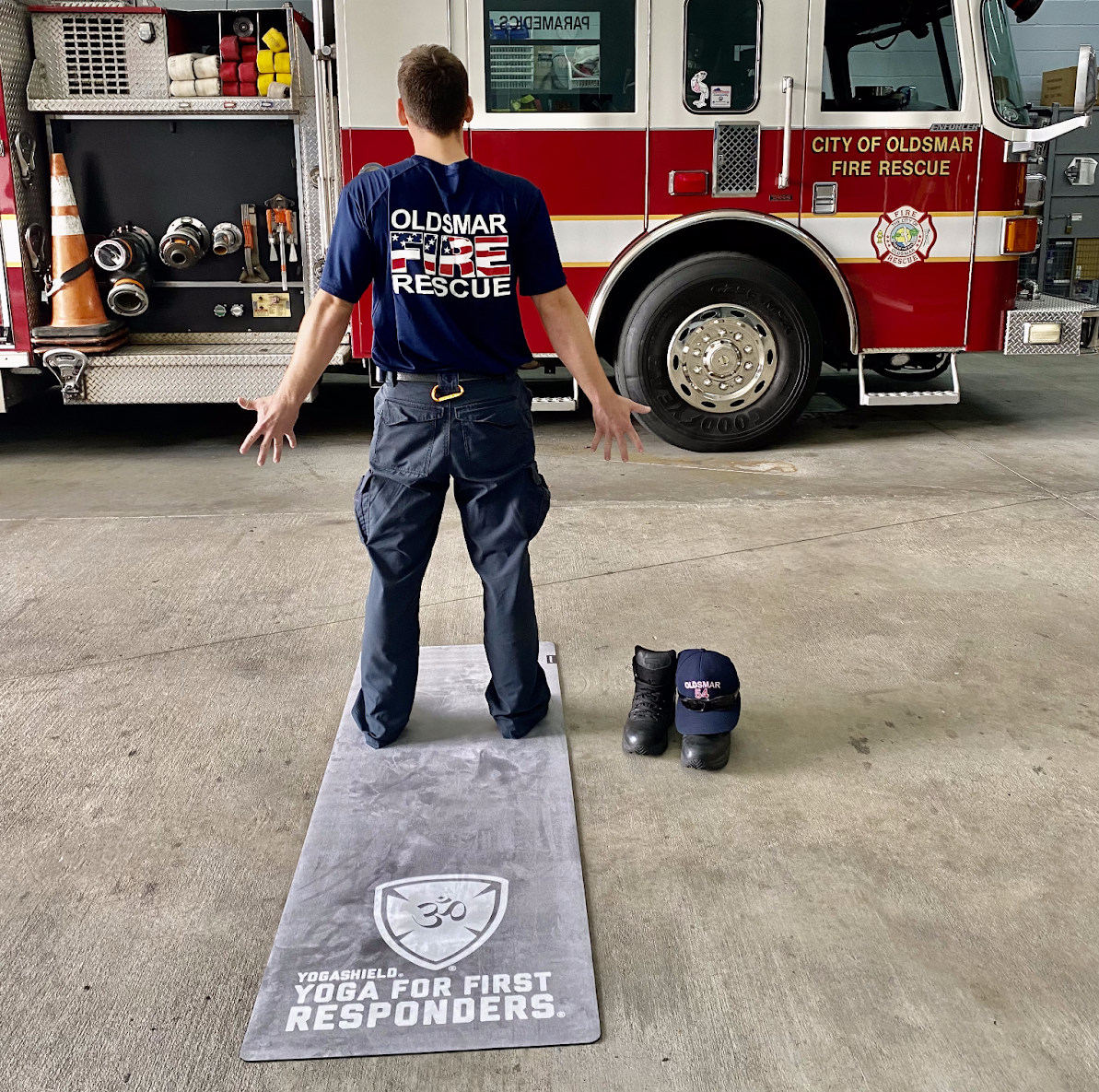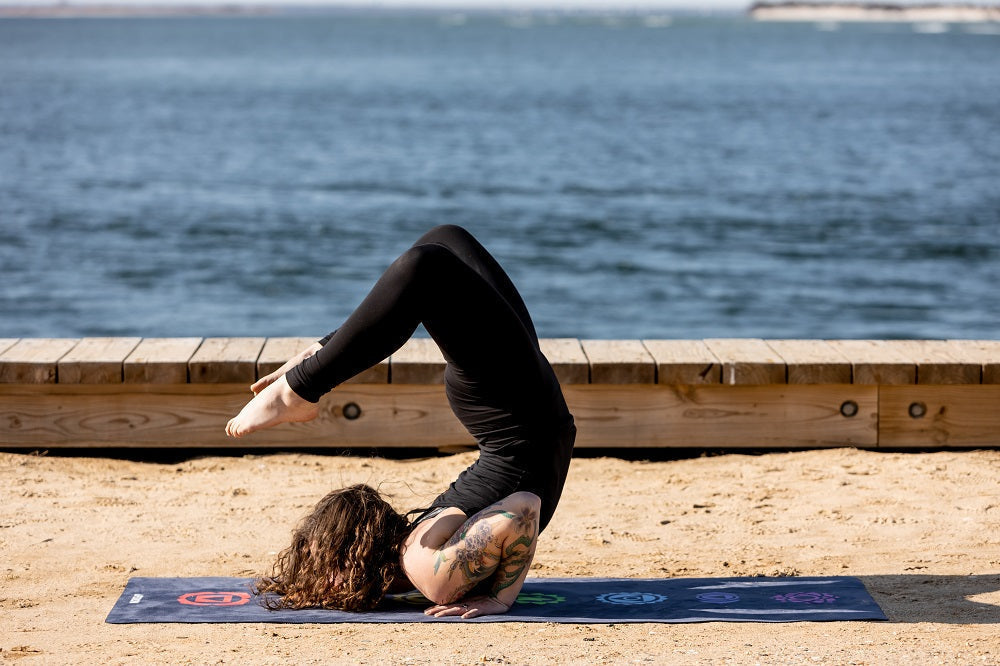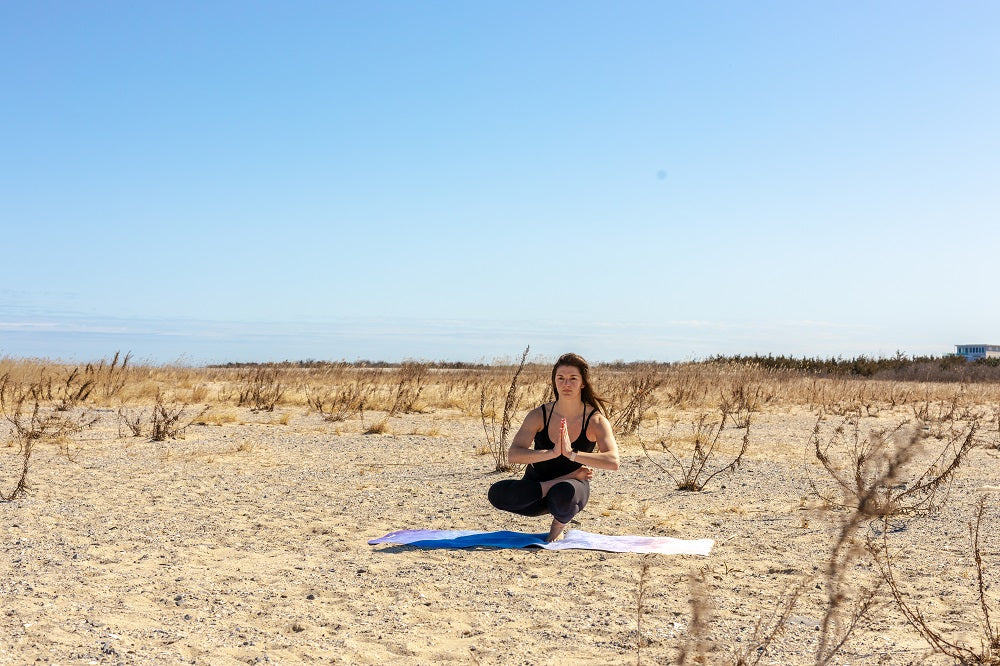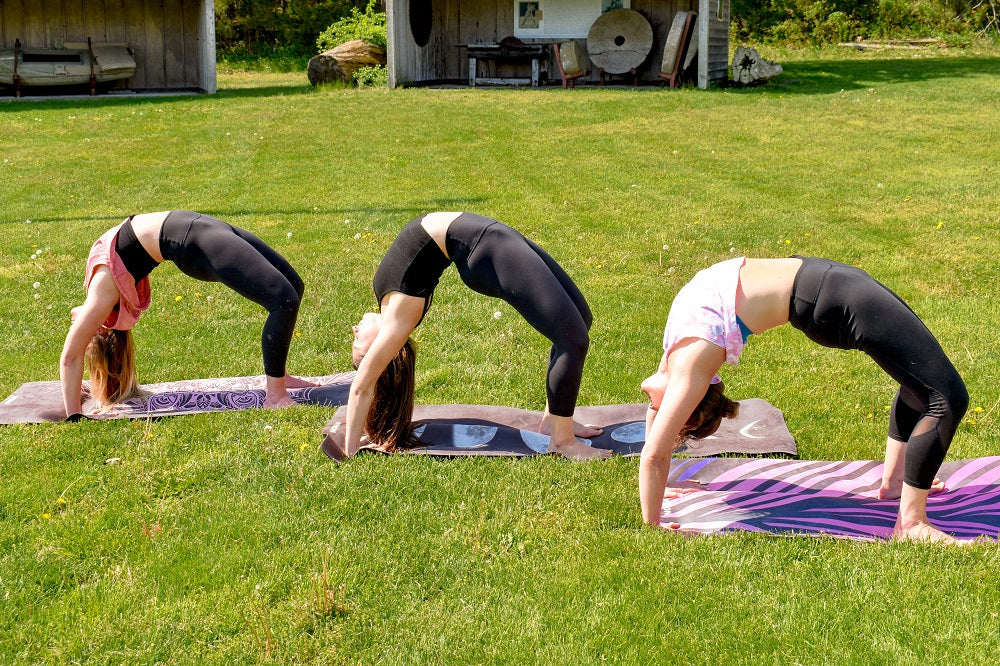✨ FREE SHIPPING on all orders within the US ✨
Yogi Spotlight: Yoga for First Responders

Yogi Spotlight: Yoga for First Responders
This edition of our Spotlight series is different from ones we’ve done in the past because it doesn’t feature just one yogi - it features a whole community of them.
We first heard about Yoga for First Responders from our friend (and former Yogi Spotlight interviewee) Brenna Vidal, and were immediately inspired by their mission to make the benefits of yoga known and accessible to thousands of first responders and military personnel.
Even with her busy schedule as Yoga for First Responders’ Development Director, Brenna was gracious enough to chat with us about how she got involved with the organization, the story behind our custom yoga mat collaboration and what YFFR has in store for the future.
First and foremost, what is Yoga for First Responders?
YogaShield® Yoga For First Responders® (YFFR) is a 501(c)(3) non-profit organization providing yoga training that is job specific and culturally informed. The techniques and drills taught using YFFR’s unique protocol trains in a skill set for processing stress, building resilience, and enhancing job performance.
When put into practice, the use of these skills builds elite Firefighters, Law Enforcement Officers, Emergency Medical Technicians, Telecommunicators, and Military Personnel for a long, survivable, and rewarding career. YFFR ensures the long-term sustainability of our classes and trainings in department and academy settings through systematic programming that is operationally sound.
To date, YFFR has trained over 300 instructors and introduced this new skill set to thousands of first responders and military personnel in the United States, Canada, Australia, and the Netherlands.
In 2019 and 2020, despite a global pandemic and social uprising, Yoga For First Responders was able to reach more than 20,000 first responders and military, in 35 states and 3 countries.

Why did you decide to get involved with Yoga for First Responders?
My motivation for supporting the mission of Yoga for First Responders comes in part from my familial ties to military and first responders: my brother is in the army, my father is a retired marine, and my husband is a firefighter. Since I was raised within this community, I have always had a longing to understand the warrior mindset and find myself constantly pushing myself to train with any opportunity that is presented.
My relationship to YFFR dates back to 2018 when I Google searched “Yoga For First Responders” sitting in bed one night when my husband was on duty at the fire station. With a degree in Psychology and Social Work, as well as many certifications in the field of Kinesiology, I knew the toll the job was taking on my husband - not only physically, but mentally and emotionally as well. I saw a need.
After the Google search, I was relieved to find that Olivia Mead, our CEO, also saw that need. I immediately researched how to get involved. From there, I attended YFFR’s 010 Instructor School where I became a certified Level 2 Instructor, able to teach YFFR Protocol in both departments and recruit academies. Since then, I volunteered when I was able, took a part-time role, and now I am the Development Director, working full time for a mission I am passionate about.
What are some of the biggest benefits first responders and military personnel can gain from doing yoga?
The original intention of yoga is to train mastery of the mind and optimal functioning of the entire psychophysiological system. Yoga training provides first responders and military personnel the ability to process the inevitable stress of their careers, build mental, physical, and emotional resilience, and enhance optimal levels of job performance from decision making to tactical skills.
YFFR’s unique, field tested, and evidence backed Protocol provides a systematic skill set to a known problem: high rates of post traumatic stress, heart attack, suicide, and other stress-based issues.
Through practicing YFFR’s Protocol, first responders and military are proactively prepared for their job and increase their long term survivability by increasing their ability to self-regulate, enhance self- and situational-awareness, enhance proprioception and fine motor skills, increase mobility, access effective sleep, perform well under pressure, and more (including all of the benefits of gaining access to a full functioning prefrontal cortex).

What is your favorite feedback you’ve received from someone who was first introduced to yoga through Yoga for First Responders?
This is such a good question, it is hard to pick just one. Below are my top two testimonials from a Firefighter and Captain within a Sheriff’s Office:
"YFFR has taught me to change my outlook on my daily dose of stress. Rather than allowing the stressors of my job tear me down, YFFR has equipped me with the proper tools to not only combat stress but to utilize and flourish in the midst of intense circumstances. Yoga and tactical breathing have had a majorly positive impact not just in my first responder life, but in my personal life as well." - Peyton P, Firefighter
“When the stakes are high, operating at peak performance increases positive outcomes for first responders. Incorporating the YFFR protocol into a training regimen gives deputies and officers the tools to constructively process stress in real-time, and positions them to improve their recovery from job-related trauma. The YFFR protocol is practical; it can be used in squad cars, shift briefings, or virtually anywhere peak performance is needed by first responders." - Dustin K, Cpt. Sheriff Dept.
How can someone participate in Yoga for First Responders?
YFFR has multiple platforms that are available to train first responders, military personnel, and civilians on the neurological benefits of yoga using our specific YFFR Protocol. This includes both in-person and online options.
In-person options include Instructor Schools (where you become certified to teach YFFR Protocol), in-service trainings, training demo workshops and conferences, academy curriculum (structured for recruit training academies), and department programs (held within department facilities). Online options include Cyber Academy (our “on demand” platform open to the public), live stream classes open to the public, and coming soon YFFR University (online courses that can be used for in-service training, personal education, or agency-wide training).
In order to keep up with the demand of these amazing opportunities, we have a Program Management Team who place trained instructors within departments requesting classes/programs and communicate with departments to ensure program satisfaction.

Along with trainings and programs, Yoga for First Responders also hosts conferences and special events throughout the year. Can you give us a sneak peek into the types of events you have planned in the months ahead?
Of course! I value highly that we DO NOT turn any agency or department away, and that is why spreading awareness about our mission through campaigns and events to raise funds and awareness is so important.
As of now, we have our first annual “Yoga For Tactical Performance Retreat” coming down the pipeline scheduled for September 25th and 26th. This will be a two day, 16 hour retreat in Ocala National Forest that will be both yoga training with Yoga For First Responders and tactical skills with our partner Full Spectrum Warrior. You can camp on property and food and ammunition are provided for a total of $500 for the whole weekend. Funds raised at this event will serve the mission of YFFR: bringing traditional yoga to First Responders and Military Personnel to process stress, build resilience, and enhance performance. For more information, or if you would like to purchase a ticket you can email development@yogaforfirstresponders.org.
What advice would you give to someone who might feel too intimidated to try yoga for the first time?
One sentence that pops to mind is “If you can breathe, you can do yoga.” When practicing yoga through YFFR Protocol, we do not care if you can touch your toes - it's all about the breath. YFFR understands that there is a persisting stereotype of “what yoga is”: that personified young girl with starbucks in her hand and wrapping her leg around her neck like a pretzel. Flexibility is a benefit of yoga, not a requirement to start. YFFR practices traditional yoga that is tailored to be job specific and culturally informed. We teach tactical breathwork, physical drills (poses), and neurological reset (meditations).
I would tell someone who feels intimidated to try yoga for the first time at home and maybe even to just start with breathwork. Many benefits can be gained by practicing 10-20 minutes a day. If that still sounds like a lot of time, then how about just 3 minutes? With our OnDemand platform, Cyber Academy, you can access classes that are as short as 3 minutes from the safety of your home.
We were honored and excited to have the opportunity to collaborate with you on a custom Yoga for First Responders yoga mat design! What was your vision and/or goals for the YFFR yoga mats?
We are so excited to work with you as well and are amped to have the first official YFFR Yoga Mat! Our inspiration came from our sense of community as an organization and with the first responders and military personnel we serve. We want folks who use the mat to be able to look down when their minds wander during their practice and remember why they're there. We want them to remember they are there for a reason by tapping into what brought them there in the first place.
The mat we created as partners is a constant reminder to anyone using it that they are part of our community, and that they are not alone. It is a reminder to them that there are a variety of first responders, military, and civilians doing the same thing they are doing - possibly in that very moment - taking care of their mental, physical, and psychological well-being and health.

Our mantra is “Live Limitless” and we aim to inspire others to pursue their passions free of self-doubt or the pressures of societal norms. How do you inspire others to live limitless through your work with Yoga for First Responders?
Living limitless is very similar to a phrase we use in YFFR: “Threat versus Challenge”. In our Instructor Schools, we teach the “Science Behind the Protocol” and part of the science is cognitive reframing. When you say that something is a challenge versus a threat, your brain is reframing the stress to have a more positive effect on the body. An example of negative vs. positive stress is that running from a bear is negative, while running the winning touchdown at the super bowl is positive.
This application is essential to first responders and military because we train them to reframe their mind when in a stressful situation. This training allows them to recognize their own limiting beliefs in that situation and reframe them into something they can control. As they practice this skill over time they learn that the things that they think are limits are just challenges. Hence, living limitless.
Where can people learn more about Yoga for First Responders?
Of course we are here to assist with programs and trainings, and you can visit us at yogaforfirstresponders.org or email us directly at info@yogaforfirstresponders.org; however, YFFR speaks for itself through the first responders and military who do the practice themselves. You can read their words and see their experiences to understand how this can be integrated into your life. Here is a list of some of our favorite personal stories that our first responders and military have shared with us:
What Happens When Our Preconceived Notions Are Completely Wrong? I Did Yoga. I Am Now A Believer.
Training Mental Resilience: More Important Than Hose Drills - by Lt. Eric Brenneman (ret.)
HOW DO I REACH YOU? - BY Claire Van Guse
Yoga: The Misunderstood Practice That Can Save Cops - By Dustin Kulling





